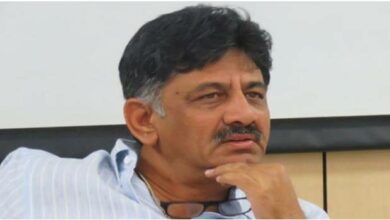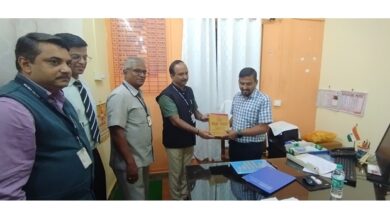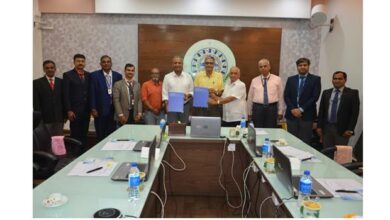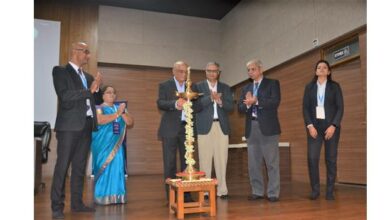EducationInternationalLiteratureSpecial ArticleSpecial Article
English is the heart of the world; Few words with you ( Part 2a -Simple Present Tense)
There are two "Tenses" in English language
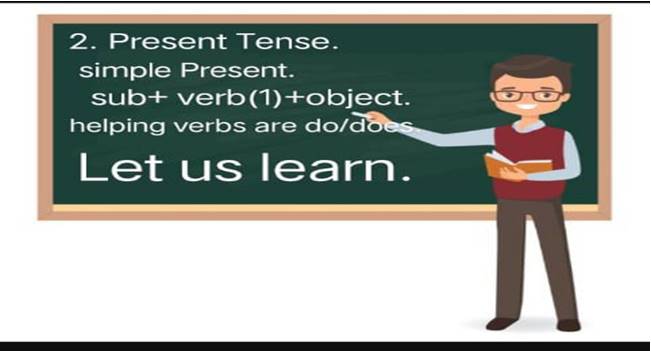



Dear friends, in the last session we had discussed about ‘Persons’ which is very important topic to remember. Today, we have to see Tenses. We talk clearly on the time base.
There are two “Tenses” in English language. According to English Grammarians like David Chrystal and others. But Indians are following still three ‘Tenses’. In modern English, no future tense.


1.Present tense 2.Past Tense
3.Future Tense
From today we discuss about PRESENT TENSE. All actions are in present situations only.
Already I mentioned that,there are four parts in each sentences. Simple, Continuous, Perfect and Perfect Continuous. They are indicating the time. So, we have to observe carefully.
In four parts, simple present is in the first place. It is called indefinite sentence. Because it has no exactness. When starts and ends ?Action may be started or may not be started. This is only the statement. The structure as is follow;
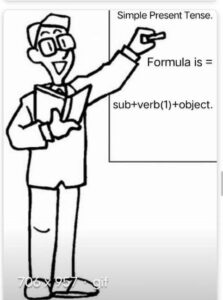

Formula = Subject +Verb (1) + Object
(helping verbs are do / does)
According to formula in the subject, persons will be there. Verbs are very important to show the action / work. Like; come, sit, learn, read, write etc. Then object will be there.
Two helping verbs in simple present. How to use them ? All most, people use inappropriate way. sometimes they say ” He come to home” It is absolutely wrong. Because in the place of ‘does’ form, “comes’ should be appeared. “He comes to home” is right. Do not confuse. In the place ‘Do’ we have to keep verb(1). What you want to say. It gives the meaning.
‘Do’ or ‘Does’ verbs are very sensitive.
Do = I, we, you, you and they.
Does = he, she, it.


I go to school.
I read newspaper.
I work in office.
I swim in the lake.
I call you later.
I clean the room.
We play cricket.
we go to Bengaluru.
We prepare for exam.
We request them.
We understand the lesson.
We listen music.
You learn english.
You ask a question.
You purchase a car.
You climb the tree.
You attend the programme.
You help the people.
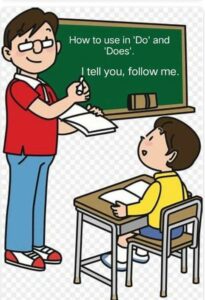

You explain about India.
You drive the car.
You cut the onion.
You call the children.
You have the ideas.
They write a letter.
They see the mountain.
They laugh loudly.
They say stories.
They take clothes.
They watch Television.
He works in school.
He paints the door.
He sees the birds.
He brings vegetables.
He runs very fast.
He plays cricket.
She washes clothes.
She helps him.
She prepares coffee.
She scolds him.
She purchases fruits.
She keeps dresses in the bag.
It eats banana.
It jumps from the tree.
It cries loudly.
It sleeps on the chair.
It brings bag.
It begs milk.
Practice well yourself in home. Try to understand. Do not leave if you do not get. Try and try and try.
Good luck.
—
For Part 1 Click –
Follow this link to join Pragativahini WhatsApp group :
(Share This link to all)


